Dr Emma Rawlings Smith (2024)
Emma Rawlings Smith (2024)
AST’s 32nd Outstanding Educator-in-Consultancy (OEIC) Programme
Dr Emma Rawlings Smith is a distinguished figure in Sustainability and Geography Education. Currently serving as a Lecturer in Sustainability and Geography Education at the University of Southampton, Emma is a Chartered Geographer and trustee of the Royal Geographical Society, actively contributing to advancing education and geography programs. She brings a wealth of experience from her background as a Secondary and Pre-university Geography and Environmental Science teacher in schools in England and the United Arab Emirates. Emma serves as the Sustainability Champion of the Southampton Education School, with research areas in teacher education, curriculum design, and place-based education.
Emma believes effective teaching and learning requires a coherent and progressive school curriculum. This curriculum is conceptually underpinned, relevant to the local context, and designed to equip students with knowledge and skills for navigating an ever-changing world. It includes embedding technology use meaningfully and incorporating interdisciplinary ideas in the classroom. Collaborative approaches could also be adopted to foster critical thinking and deep learning among students and effective professional learning is crucial in realising these educational goals.
Overview of Collaboration between Outstanding Educator (OE), Master Teachers (MTT) and Teacher Collaborator (TC)
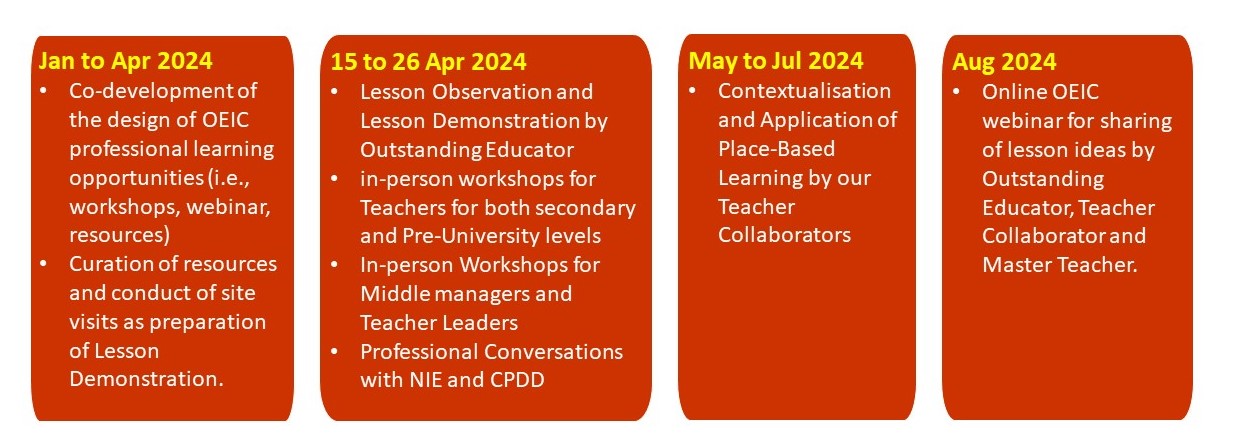
Prior to her engagement as the Outstanding Educator for AST’s OEIC 2024 (from 15 April to 26 April 2024), Emma collaborated closely with our Master Teacher/Geography, Ms Melanie Lum, in co-designing and co-developing engagements for our educators. These in-depth discussions explored the opportunities and affordances for incorporating place-based learning and sustainability education in the local context, and further deepening the beliefs and pedagogical practices of Geography educators with an eye on the evolving education landscape and development of students' Emerging 21st Century Competencies (E21CC). The outcomes of this collaboration has enriched the professional learning of local Geography educators and laid the groundwork for impactful and contextually relevant learning experiences for students.
Overview of Lesson Demonstration at Holy Innocents’ High School
Emma collaborated with our local Teacher Collaborator, Mr Alvin Yeo (Lead Teacher/Geography, Holy Innocents’ High School (HIHS)), to apply place-based learning strategies for teaching the concept of sustainable water management in a Secondary One classroom at Holy Innocents’ High School (HIHS).
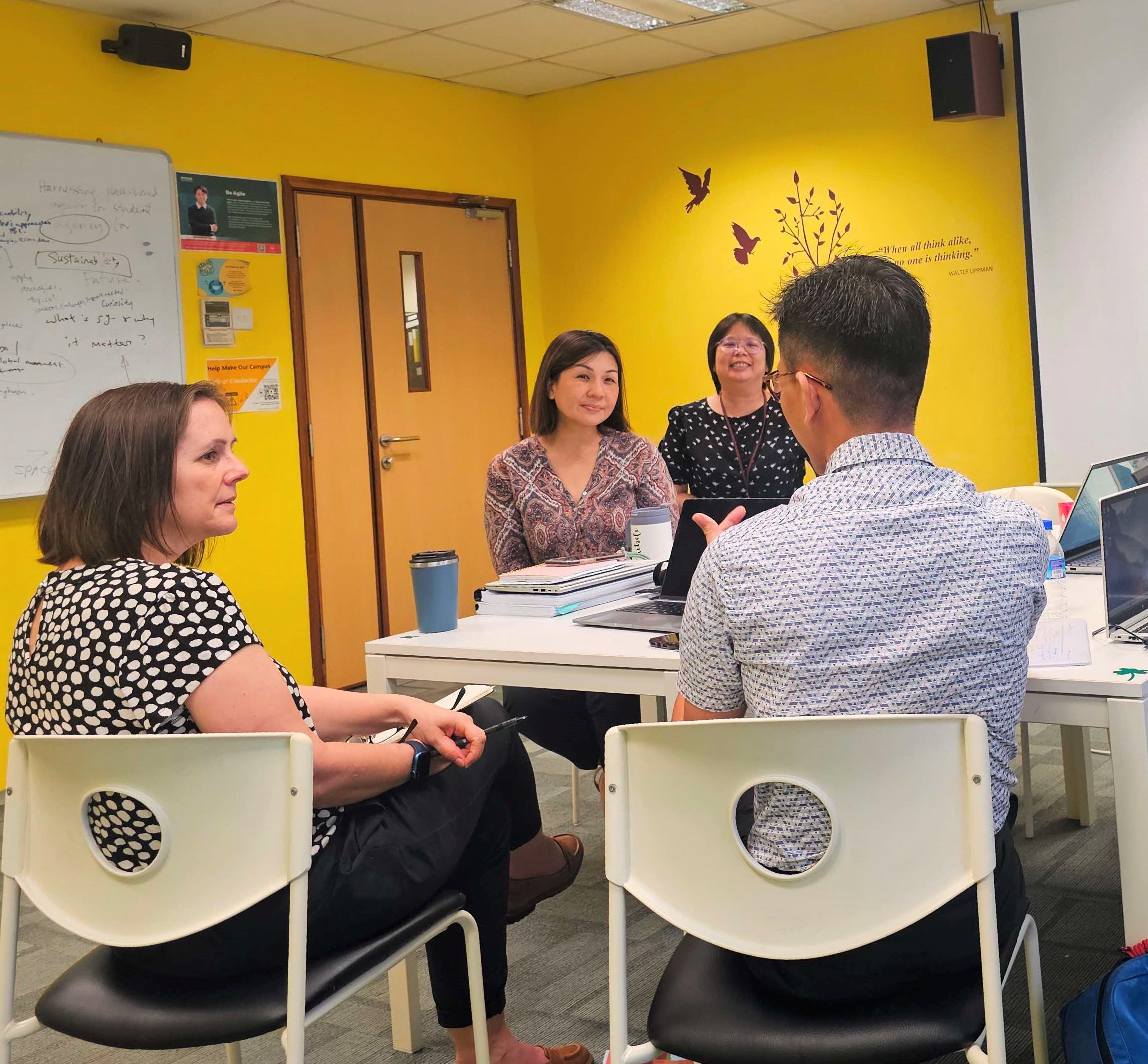
The lesson focused on place-based learning, exploring the Serangoon Reservoir Catchment at Hougang Town to understand water management in the local environment.
The lesson focused on place-based learning, exploring the Serangoon Reservoir Catchment at Hougang Town to understand water management in the local environment. Using a variety of EdTech tools, students engaged in a variety of resources such as paintings, photographs, videos and narratives of local residents and found out why the importance of their local river in the past and present.
To get them to be concerned about water conservation, students were also challenged to consider how our four national taps may be affected by future scenarios such as climate change. The lesson ended with students reflecting on ways in which we can play a part in conserving water from the individual to city scale.
Through this interdisciplinary learning experience, students gained insights into the interconnectedness of human activities and natural systems, fostering a sense of responsibility towards environmental conservation.
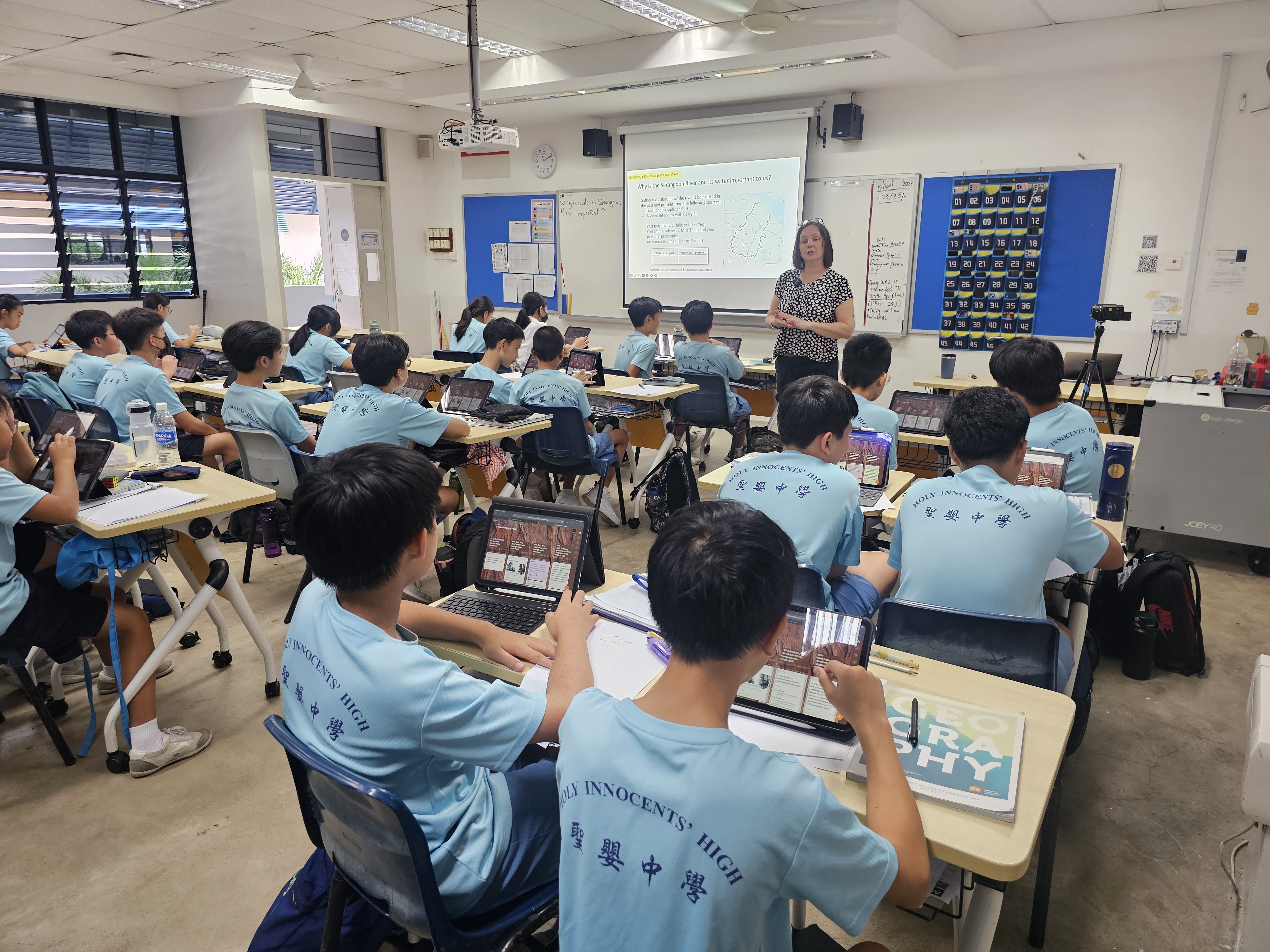
Overview of Onsite Workshops
Emma modelled pedagogical leadership by providing perspectives on place-based education to enhance learning experiences for students through her perspectives as a Geography educator, academic, and work in the public transportation and urban planning sector. She encouraged teachers to consider connections between the self and community through various activities such as mental maps which drew from individuals’ personal geographies, values analyses, and debates based on authentic case studies from the community, to invite students to reflect more deeply on their relationship with their local context and environment.
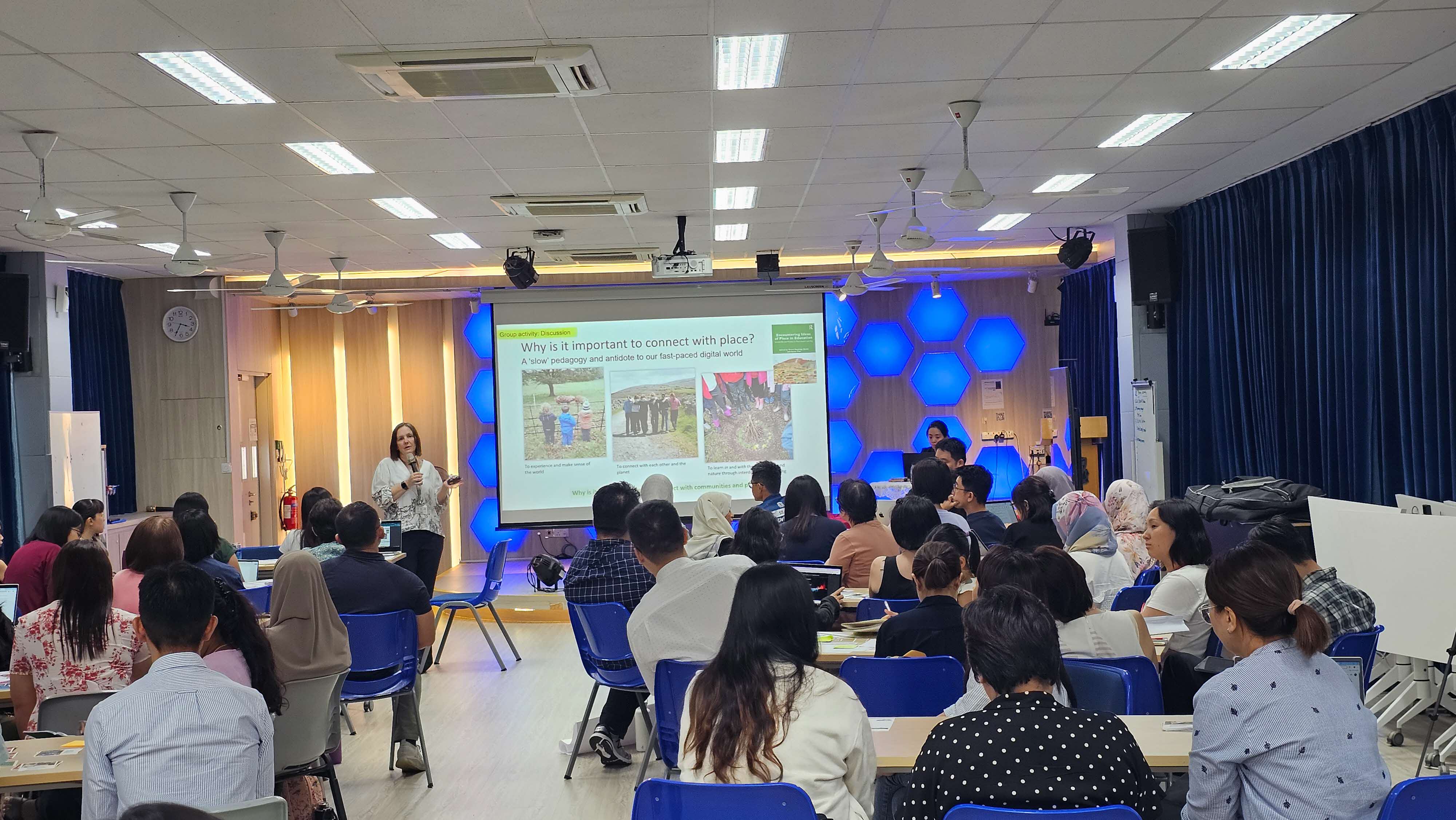
The workshops were customised to meet the learning needs of various teachers’ levels and profiles (i.e. Secondary, JC Teachers, Middle Managers, Teacher Leaders). The learning activities encourage collaborative learning and sharing of classroom practices and experiences, which allows teachers to exchange best practices and address common concerns. This tailored approach facilitated targeted exploration of pedagogical strategies, assessment methods, and pedagogical leadership development, fostering impactful learning experiences across different teaching profiles and levels.
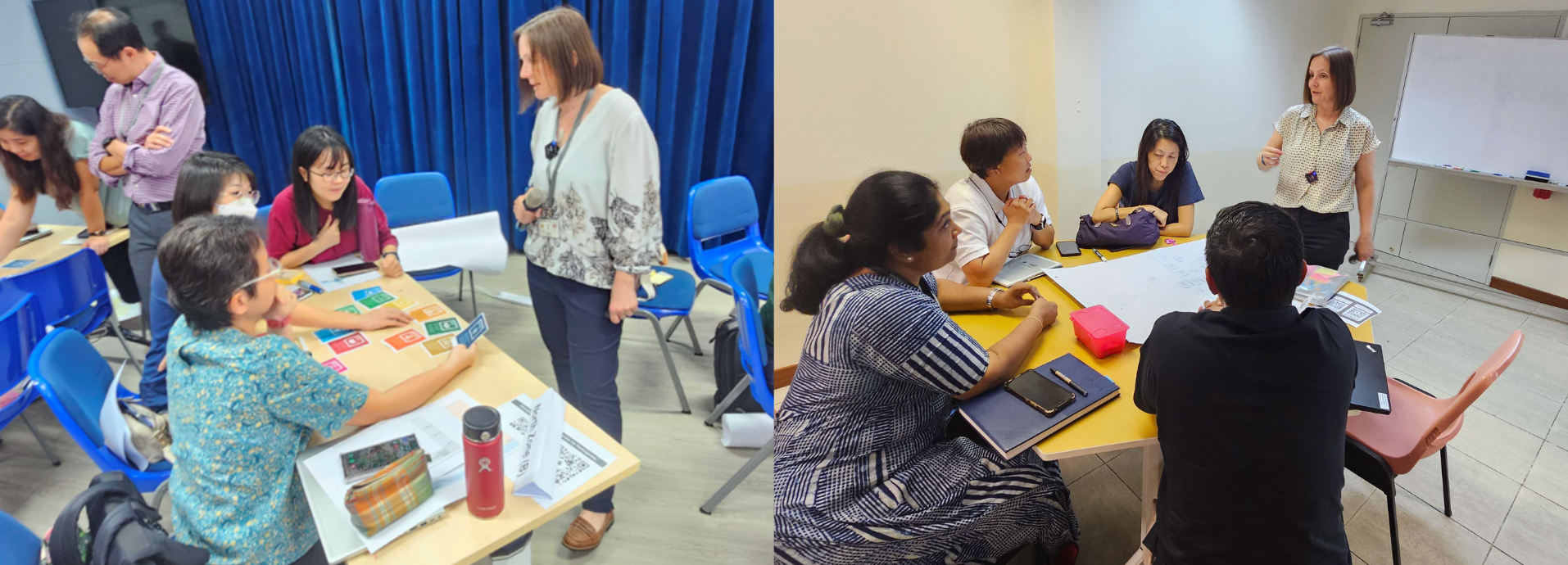
Feedback from Workshop Participants
Participants expressed appreciation for the practical and useful resources and innovative ideas for executing sustainability lessons, and they highlighted the importance of integrating place-based learning in everyday lessons; planning for intentional experiences; and applying place-based learning in the classroom with greater depth. They also expressed interest in exploring different inquiry methods to enhance students’ learning experiences.
Overview of Webinar and OE sharing
The webinar, titled "Applying Place-based Learning in Sustainability Education – What does it look, sound and feel like?" focused on the integration of place-based learning into sustainability education, aiming to empower students with civic, global, and cross-cultural literacy within the framework of Emerging 21st Century Competencies (E21CC).
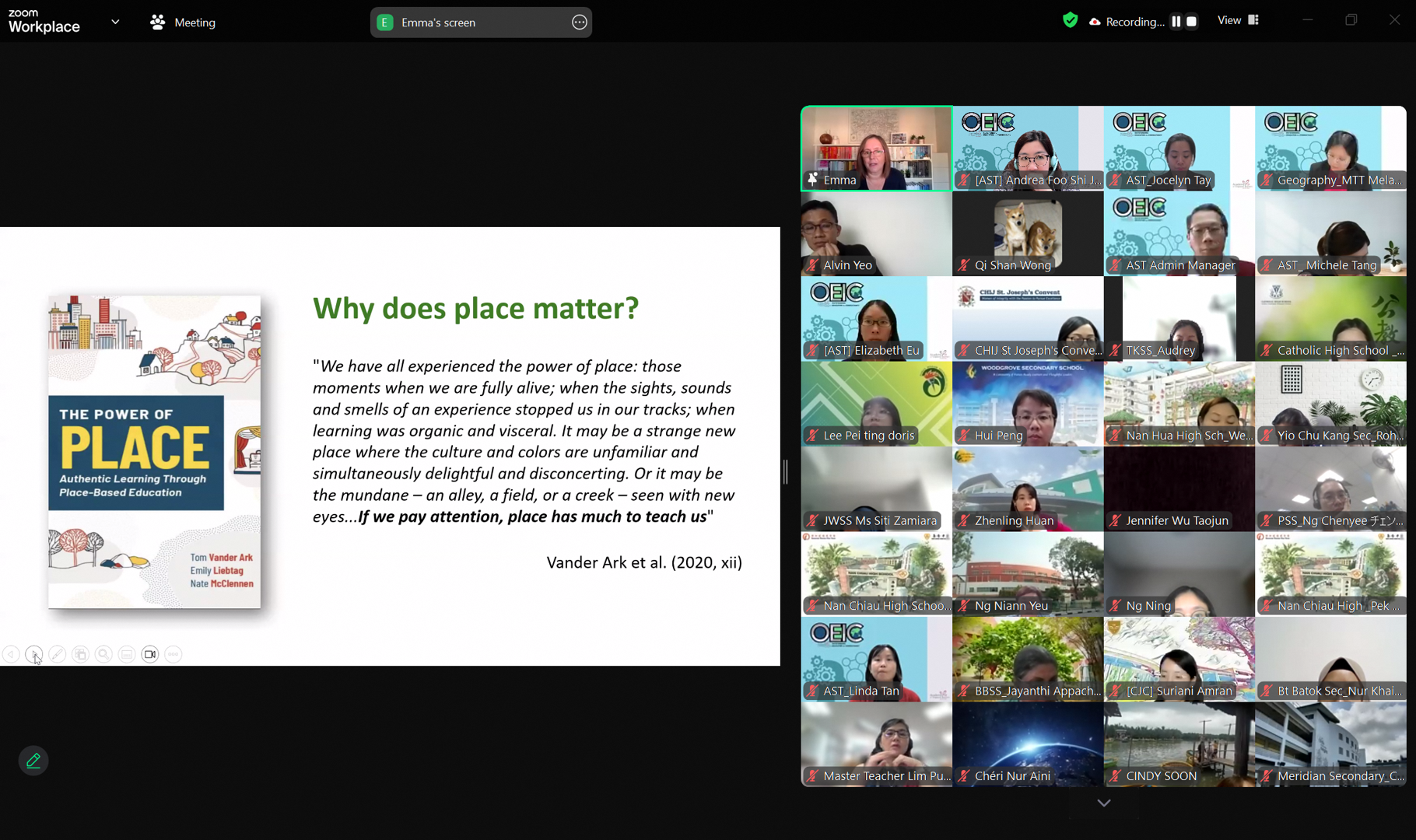
Emma's presentation on "Place-based education in a rapidly changing world" highlighted the importance of place in geography education and outlined key principles for implementing place-based pedagogies. Emma demonstrated infusing place-based learning into lessons through the lens of 'Big Concepts, Community Contexts’. Her emphasis on student agency through the "Ask, Find Out, Act" frame and the inclusion of community perspectives underscored the transformative power of place-based education. These practical strategies empowered teachers to deepen students' understanding of geographical concepts, foster environmental and societal responsibility, and empower them to become informed, responsible stewards of the Earth.
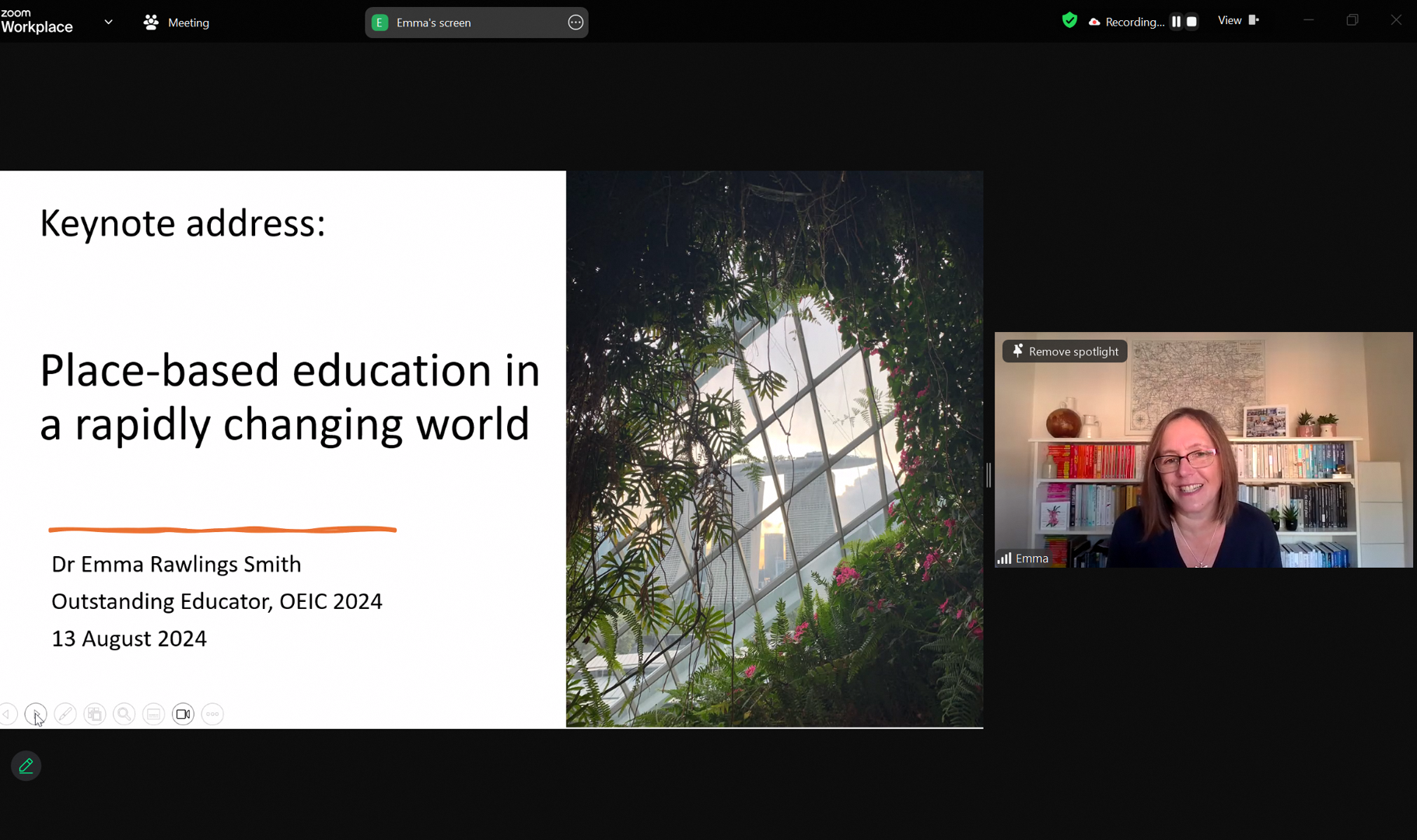
Contextualisation and Application of Place-based education by our Teacher Collaborators
Our Teacher Collaborators, Mr Alvin Yeo (LT/Geography, Holy Innocents’ High School) and Ms Suriani Amran (ST/Geography, Catholic Junior College) contextualised and applied place-based learning in their classroom context by incorporating real-world, local examples to enrich students' understanding of key concepts.
Alvin centred his lesson on the importance of a good transport system in a city, using Singapore's public transport development and Hougang as a case study. By engaging students in activities that involve analysing historical and current maps, examining changes in transport infrastructure, and reflecting on the economic, social, and environmental significance of transport evolution, the lesson prompts students to consider the impact of good transport on their lives and the city.
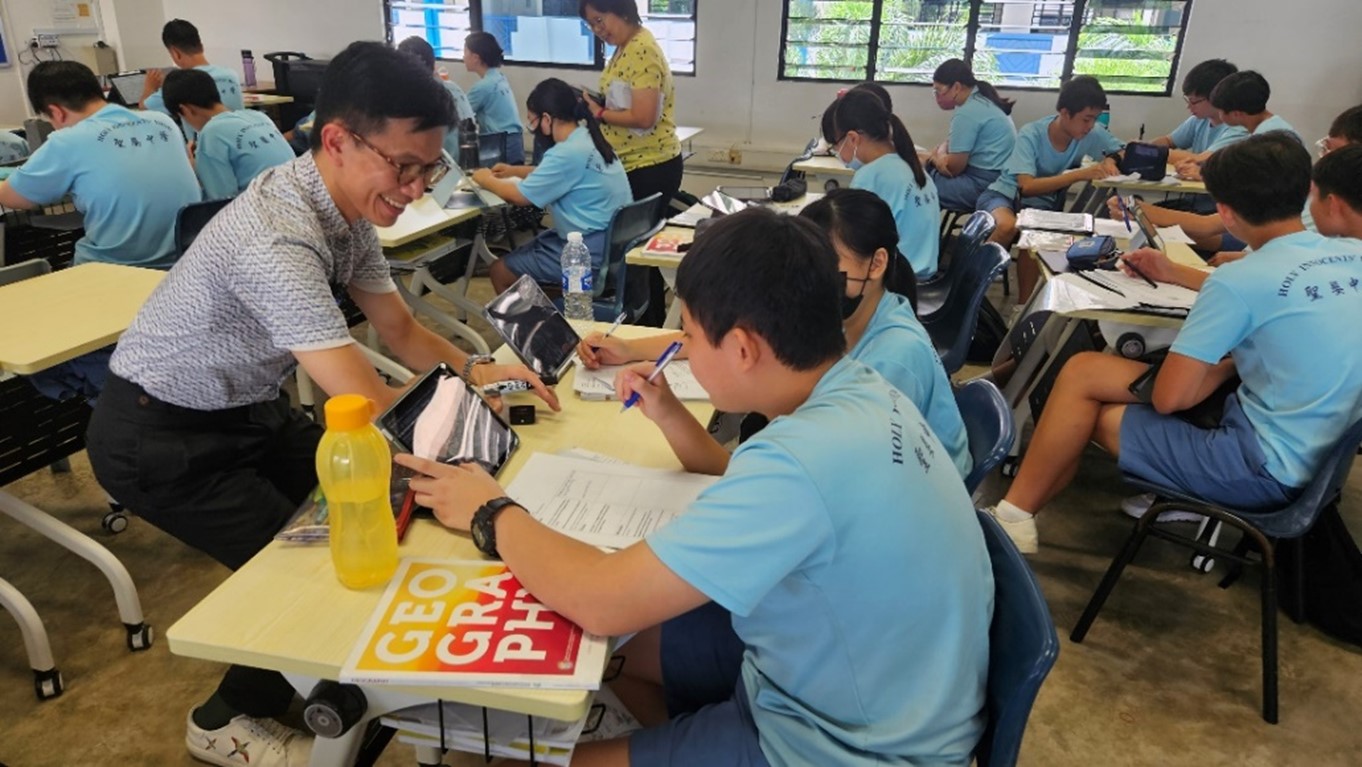
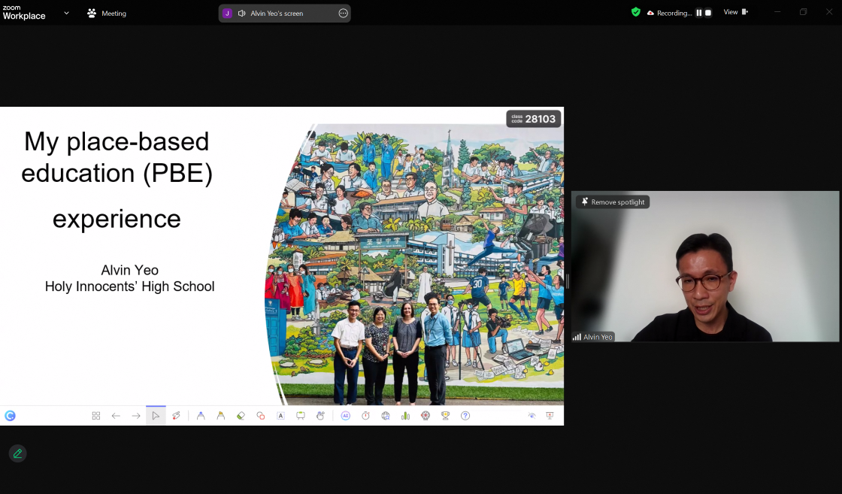
Similarly, Suraini's lesson focused on the multifaceted nature of liveability in a city, utilizing mental maps as a tool to explore diverse experiences within a neighbourhood, emphasizing the influence of various factors such as age, gender, socio-economic profiles, and physical capabilities on residents' experiences. By adopting different female resident profiles through activities that involve analysing mental maps and reflecting on the diverse experiences within a neighbourhood, students gained empathy for various perspectives and understood the complex factors influencing women's experiences in the city.
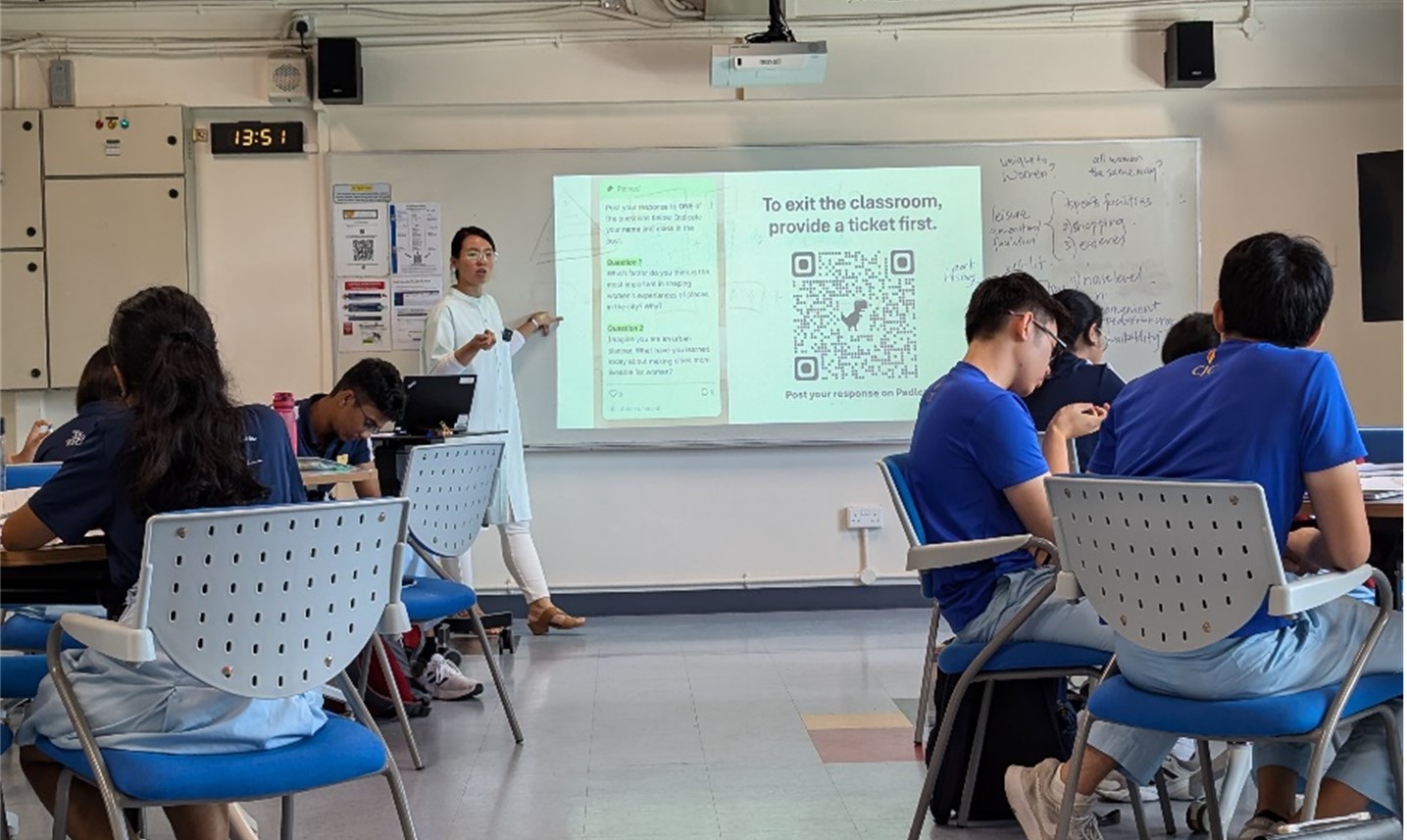
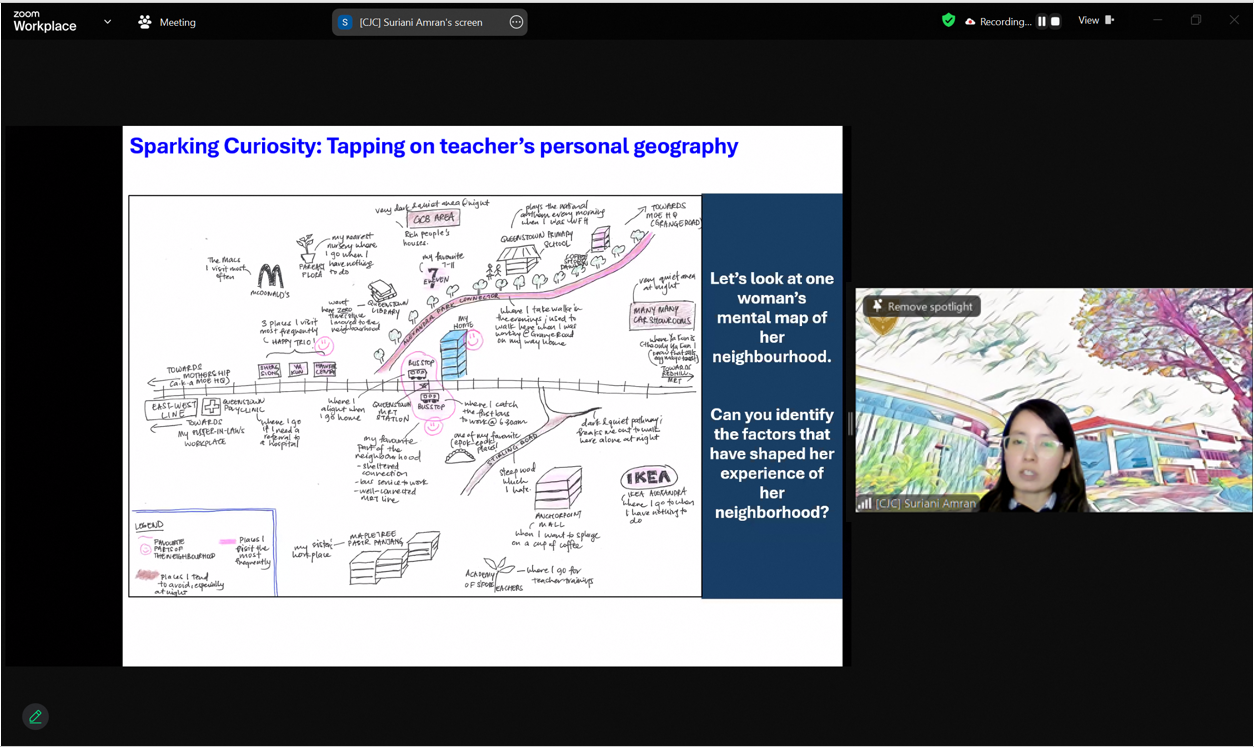
OEIC Insights from Professional Conversation(s) with NIE, CPDD, and AST
The conversations underscored the significance of place-based learning in offering contextualised and experiential learning opportunities, particularly beneficial for students with Special Educational Needs (SEN). This approach, rooted in real-world settings, provides a tangible and immersive learning experience, catering to diverse learning needs and bolstering student engagement. Moreover, the discussions delineated the unique attributes of place-based learning, distinct from traditional case studies and field work, emphasising its focus on local environments, community connections, and interdisciplinary learning.
Addressing the challenge of curating lessons without physical visits, the conversations highlighted the use of virtual resources, community partnerships, and technology to create authentic place-based learning experiences within the classroom. These insights offer a comprehensive understanding of the principles and practical applications of place-based learning, showcasing its potential to enrich educational experiences and meet the diverse learning needs of students.
OEIC Insights for Geography and Sustainability Education
The OEIC programme has significantly advanced Geography and Sustainability Education through the pivotal role of place-based learning. Key insights include immersing students in local environments, incorporating historical perspectives and personal geographies, fostering cross-disciplinary collaborations, and engaging with students' emotions. Practical examples and demonstrations of implementing place-based learning in our teacher collaborators’ classroom were appreciated, with a focus on making geographical concepts relatable to students' daily lives. The intention to incorporate local context, develop interdisciplinary learning, tap on students' personal geographies, and leverage technology further underscores the commitment to enhancing relevance, engagement, and fostering a sense of place and ownership in students. By humanising teaching and learning, the programme empowers educators to create more authentic and impactful learning experiences, advancing Geography and Sustainability Education.
We are honoured to have collaborated with Dr Emma Rawlings Smith through the OEIC Programme and we would like to thank her for her generosity in sharing her insights with our local educators.

